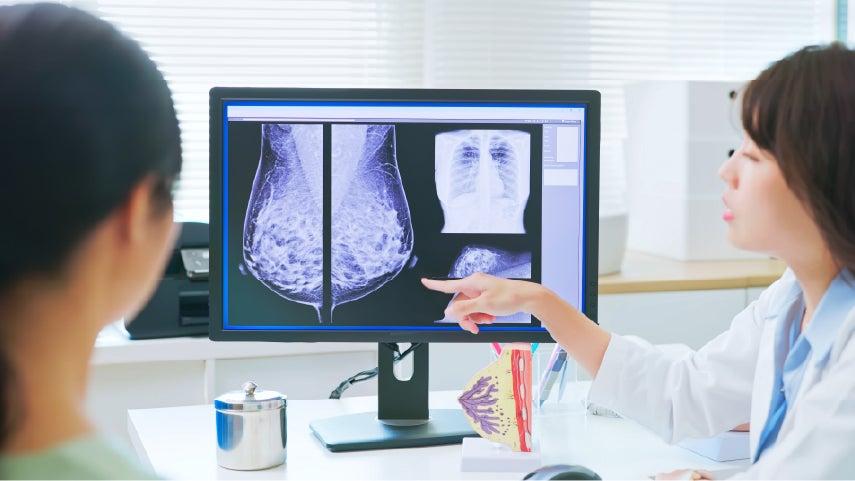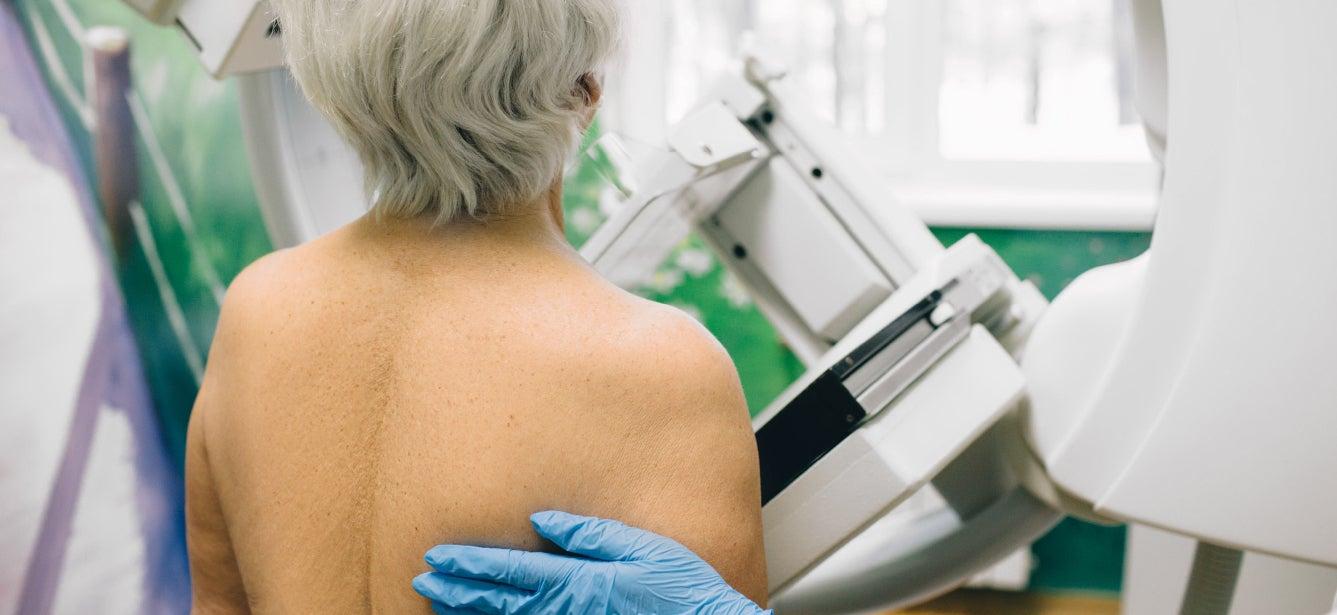What to Know About Hormone Replacement Therapy and Breast Cancer Risk
4 min read

Related Topics
As I woman in my 50s, I know firsthand that perimenopause and menopause can be a challenging season of life as you adapt to changes in your body and energy levels. Although not all women need to treat their symptoms, if your symptoms are severe enough, your health care provider might suggest trying treatment, like hormone replacement therapy (HRT), to lessen your symptoms. While HRT might increase the risk of breast cancer—especially with long-term use—the benefits of HRT outweigh the risks for many people. Here’s what you need to know:
What is hormone replacement therapy (HRT)?
HRT is a treatment for women and people assigned female at birth that replaces estrogen and progesterone, the hormones that gradually decrease during menopause. This most commonly starts between the ages of 45 and 55.
To reduce or treat menopausal symptoms, you might choose to take hormone medicines like HRT as you approach menopause (also known as perimenopause), during menopause, or after menopause.
Does hormone replacement therapy increase cancer risk?
Some studies show using HRT with estrogen and progesterone for more than 10 years might increase your risk of breast cancer. It’s recommended to take HRT only for as long as it’s needed or until menopausal symptoms finish.
Estrogen therapy alone can increase your risk of endometrial cancer, but pairing estrogen with progestogen (also known as progestin) lowers this risk.1 Providers will likely prescribe them together.
Whether you choose to use HRT, it’s important to stay up to date on your annual mammograms and other routine cancer screenings to prevent or detect cancer early, when treatment is more likely to be successful.
How do I know if hormone replacement therapy is right for me?
The U.S. Food and Drug Administration (FDA) recommends that women use HRT at the lowest dose that helps for the shortest time needed to alleviate menopause symptoms.2 If you have menopause symptoms, talk with your health care provider about HRT and its benefits and risks.
According to the National Cancer Institute (NCI), some studies show that women who have previously been diagnosed with breast cancer may be advised not to use HRT as it could increase the risk of breast cancer recurrence. However, other studies do not show an increased risk for breast cancer survivors compared to the general population. If you have had or currently have breast cancer and are thinking of using HRT, be sure to discuss your medical history with your health care provider and talk about what’s recommended for you.
Are there any alternatives to hormone replacement therapy that I should consider to treat my menopause symptoms?
There are some FDA-approved non-hormonal medicine options available to treat menopause symptoms.1 Talk with your health care provider if you have menopause symptoms to determine what your treatment options are.
It’s especially important to check with your health care provider before using any “natural” products that are not FDA-approved to treat menopause symptoms. You may be able to manage symptoms through lifestyle changes, like eating a balanced diet and exercising regularly.3
Research to date indicates HRT is a safe and effective option, and it may be the best solution for you. By considering the pros and cons of HRT with your health care provider, you can come up with a plan to establish and maintain a healthy lifestyle during and after menopause.
How can I reduce my risk of breast cancer?
While you might be focused on treating perimenopause and menopause, don’t neglect your routine cancer screenings, including breast cancer. Women over the age of 40 are at increased risk of developing breast cancer. While highly curable if found early, many breast cancers are diagnosed once they have already spread. That’s why it’s so important to get screened for breast cancer based on guidelines and your personal risk factors to catch cancer in its earliest, most treatable stages.
There are many lifestyle-related modifications you can incorporate to reduce your risk of breast cancer:
- Do not smoke or use tobacco in any way. If you do, quit. Call 1-800-QUIT-NOW for support.
- Exercise for at least 30 minutes, at least five days a week.
- Avoid or limit alcohol consumption.
- Maintain a healthy weight. Obesity is linked to many cancers, including those of the endometrium, liver, kidney, pancreas, colon and breast (especially in post-menopausal women).
By prioritizing your health, you’ll have more years ahead to spend time doing things you love—like spending time with grandchildren, traveling and trying out new hobbies.
Sources
1. National Institutes of Health. Menopausal Hormone Therapy and Cancer. Cancer.gov. September 25, 2023. Found on the Internet at https://www.cancer.gov/about-cancer/causes-prevention/risk/hormones/mht-fact-sheet
2. U.S. Food and Drug Administration. Menopause. December 14, 2023. Found on the Internet at https://www.fda.gov/consumers/womens-health-topics/menopause
3. Mayo Clinic. Menopause - Diagnosis and treatment. August 7, 2024. Found on the Internet at https://www.mayoclinic.org/diseases-conditions/menopause/diagnosis-treatment/drc-20353401


